Their lives were documented online from birth. Now, they’re coming of age
The ‘Truman babies’ — the children of families who shared their lives on YouTube since birth — are now growing up. Rolling Stone UK speaks to the ‘family vloggers’ of this first heavily documented generation
By Amelia Tait

When Tripp Ellis was born on 18 December 2008, some of the first words he heard were: “Oh, he is long!”. A nurse in a Santa hat rubbed his purple body with a towel as his mother, Lora, stared at him adoringly. “Hey,” she greeted her newborn son, wiping a tear from her eye. I — along with 5.2 million others — know this because Tripp’s birth was uploaded to YouTube on Boxing Day that year and regular vlogs of the rest of his life followed.
On 31 December 2009, Tripp took his first steps as a camera videoed him from the sidelines. In December 2011, he went to Disney World for the first time and shouted “I’m happy!” from the carousel (later, he was apprehensive when meeting Buzz Lightyear, bowing his head and chewing his thumb). In November 2013, Tripp got his first fat lip after someone pushed him at school. In March 2019, he beat his entire family at mini golf, but he didn’t gloat.
Ten years before Tripp was born, in 1998, Paramount Pictures released The Truman Show, a dramedy in which Jim Carrey plays Truman Burbank, a man whose life has been filmed and broadcast from the moment of his birth. Hidden cameras documented Truman’s every move; millions watched from diners, sofas and even bathtubs. In 2005, director Peter Weir noted that it was once “a dangerous film to make” because “it couldn’t happen”, but as reality television burgeoned in the years after its release, the movie came to be considered remarkably prescient. “It” happened, to some degree, on shows like The Real World, Big Brother and Keeping Up with the Kardashians. The real Trumans, however, would be found on YouTube, which launched in 2005.
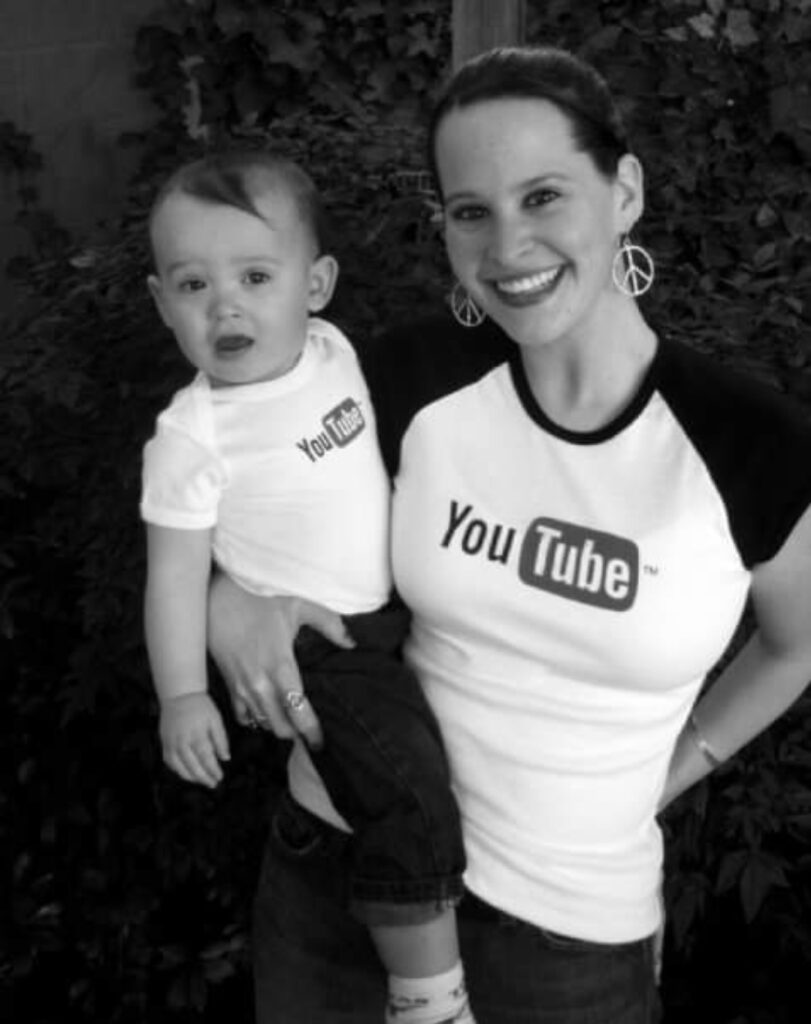
There are now hundreds of children whose everyday existence has been broadcast fodder since birth. ‘Family vlogging’ took off when Idaho father Shay Butler began uploading videos of his children in 2008. This means the world’s oldest ‘Truman babies’ are now hitting their teens. Unlike Truman, these children haven’t been misled, the people around them aren’t actors; they’re aware they’re on YouTube and that the world they live in isn’t a film set. But still, thousands of strangers have observed their every move.
“It’s not fake. It’s all real stuff. Everything we actually do”
— Tripp Ellis
“I think it’s cool,” remarks 13-year-old Tripp, when asked how it feels that five million people watched his birth. Clad in a light-blue T-shirt and with swooping dark hair, he looks younger than your typical teen, but speaks in a confident, considered way, rarely looking to his mother for reassurance.
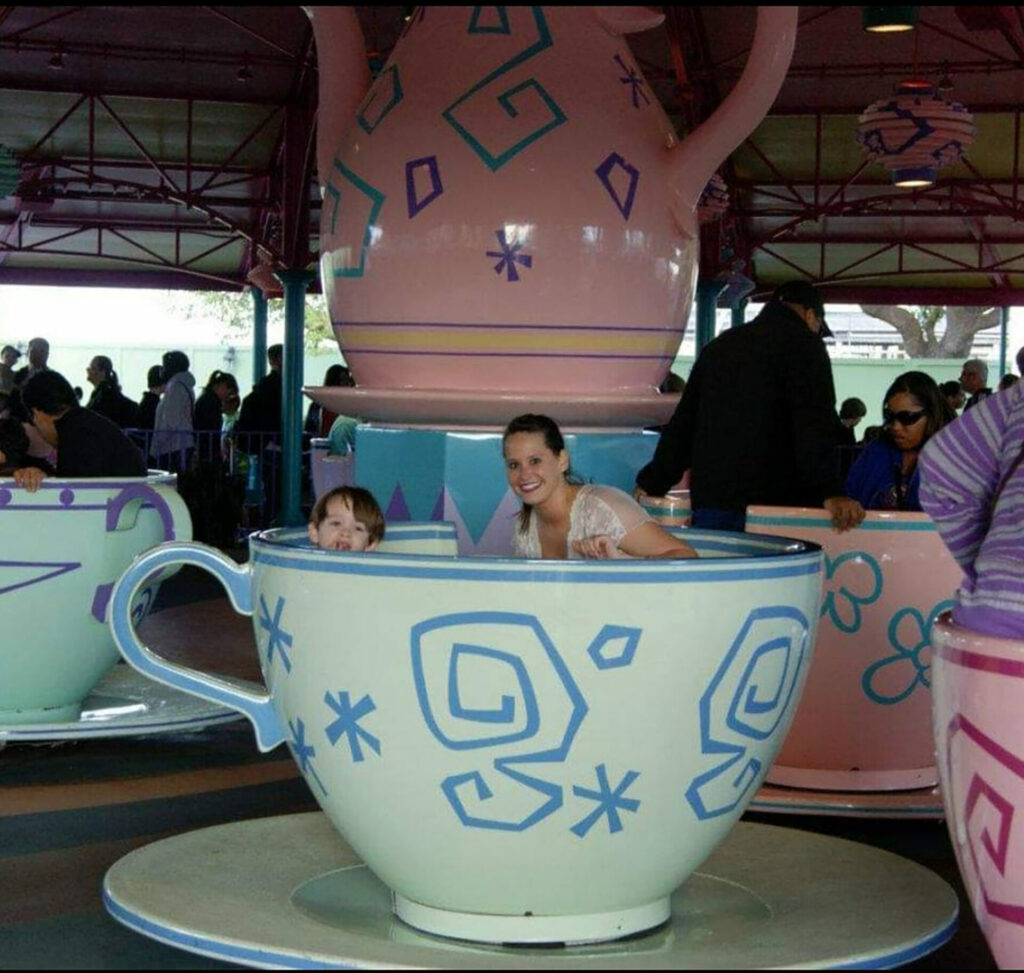
Tripp has three younger siblings: Declan (whose birth clocked up 5.9 million views), Everett (7.6 million), and Lyla-Jade (4.4 million — Tripp even helped film it). When asked why he thinks people like to watch his family, Tripp says: “It’s not, like, fake. It’s all just real stuff. Everything we actually do.”
The Ellis family live on Amelia Island, Florida, and their channel, LoraAndLayton, has 276,000 subscribers, who are mostly women aged 18—40.
“I’ve kind of been obsessed with filming my entire life,” says 33-year-old Lora, who bought her first camera with babysitting money aged 11 and took it to sleepovers, parties and even restaurants. Lora attributes her obsession to her “Bubba”, her grandfather, who would always record family get-togethers. As a child, Lora used to play the tapes back for hours, sometimes viewing the same one four times in a row. She was “hooked”.
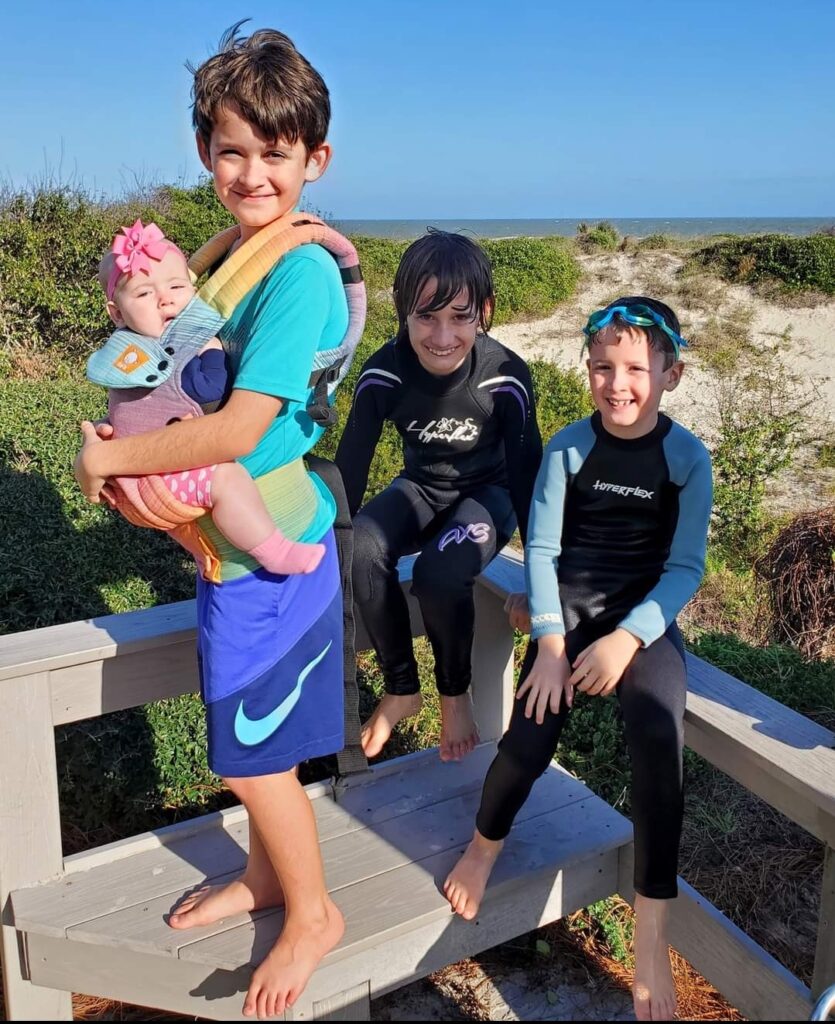
In 2006, Lora started uploading quick, silly YouTube videos; two years later, she vlogged her pregnancy to keep faraway family up to date. When her channel took off, she saw it as a way to “help other mums”, but she also loved the creative outlet, and says editing videos kept her calm. “I just felt like so much of what we saw on TV and the internet all the time was just dark. I wanted to share light.”
Lora admits that her children have grown up thinking being on YouTube is normal. Tripp doesn’t recall the particular moment when he realised he was living his life on film. But 13-year-old Zoe Killen’s earliest memory is of playing with her sister and looking up to see her mum holding a camera. “It’s a weird black object and I didn’t know what it was,” she remembers.
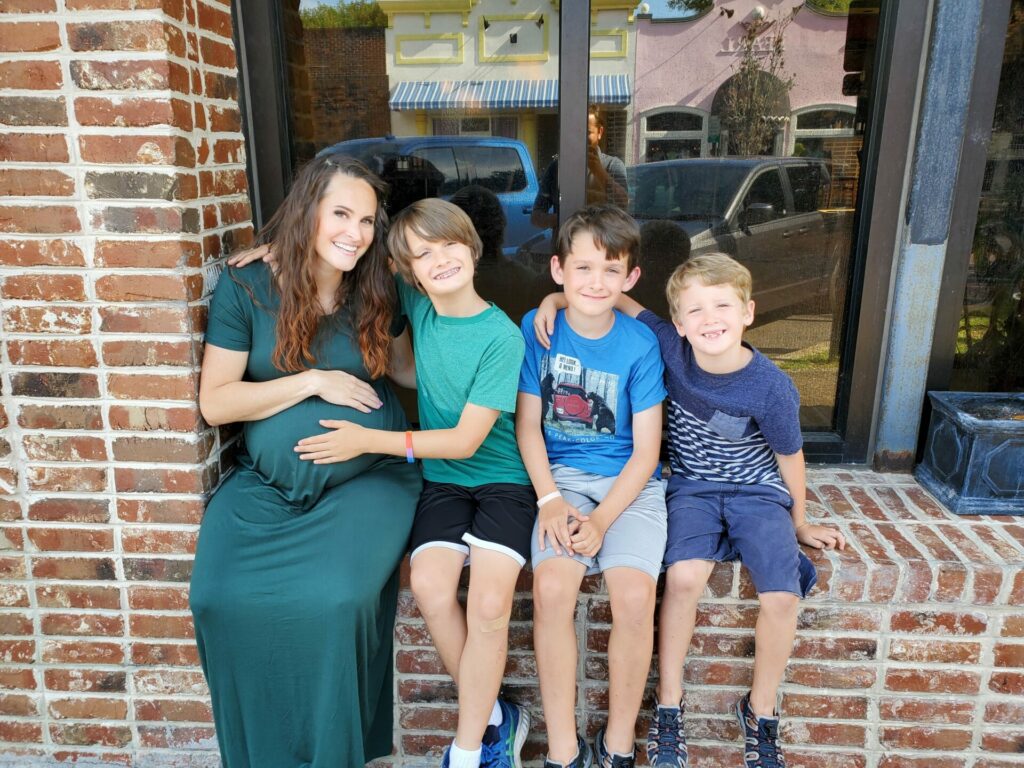
When an infant Zoe first started using a sippy cup in 2009, her mum Katherine delightedly told viewers: “She’s looking at me so funny, talking to the camera.” Now 35, she began filming her daughter when she was six months old, but Zoe’s younger sister Piper, 10, is the real Truman in the family: her C-section delivery has 19,000 views. The Alabama family have just under 50,000 subscribers (mostly women in the 18—25 age bracket) to their channel, The Killen Clan, and like Tripp, Zoe and Piper’s milestones and mundane moments alike are caught on camera.
“I don’t know,” Piper answers when asked how it feels that thousands have witnessed her birth. She sits on the sofa in a brightly coloured sweatshirt, her knees defensively drawn up — by her own admission, she’s shy. Next to her, Zoe sports dyed orange hair, matching eye shadow, heavy eyeliner, and a choker necklace.
Zoe initially thought her mum filmed her to show her grandparents — she was six when she realised strangers were watching. “I remember feeling like, ‘Well, that’s a little bit strange,’” Zoe reveals, “‘Random people are watching me — it’s like a Santa Claus kind of thing.’ But as time goes on, I am just like, ‘Meh.’ It’s my life, I’m used to it.”
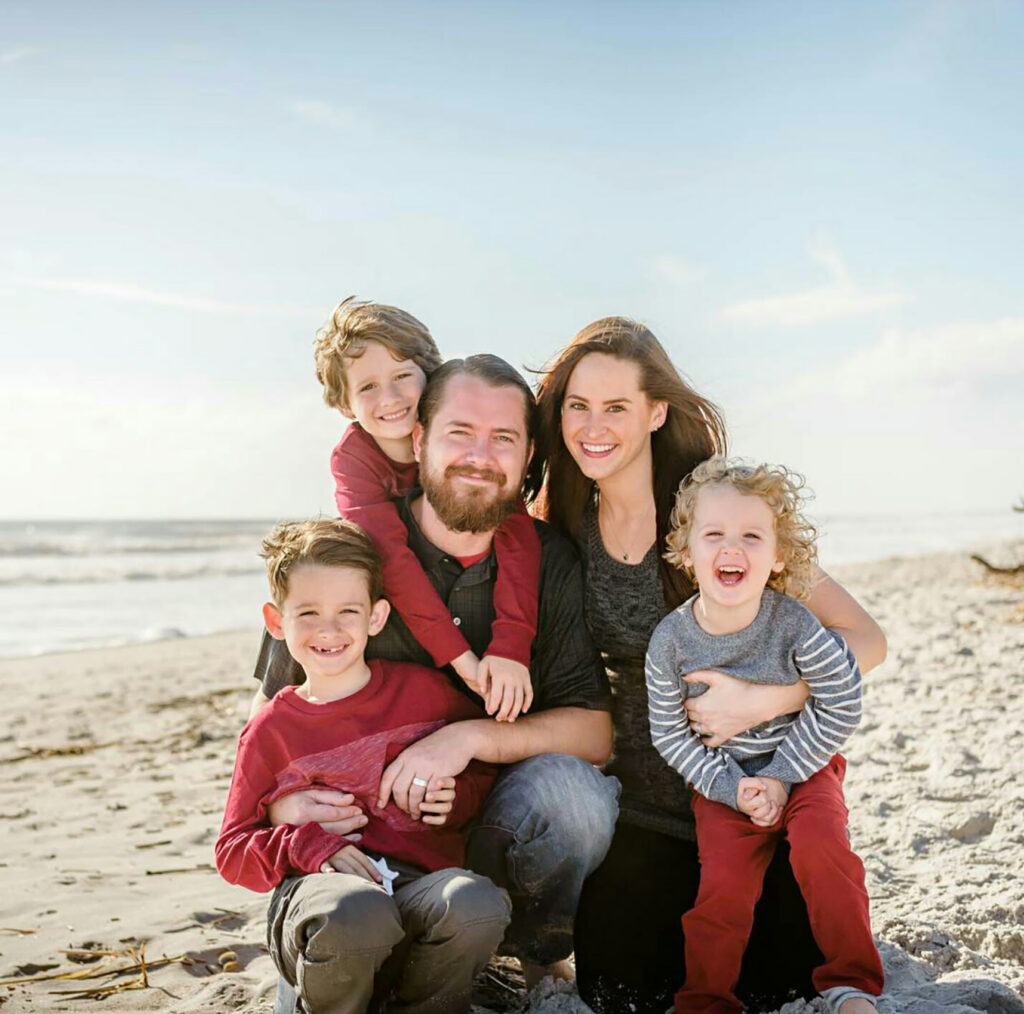
It look Piper longer to catch on — in the past year, she’s opted out of appearing in vlogs because, “I get nervous in front of the camera.” She also sometimes dislikes it when fans approach her in public (“Why do people always do that?”). Zoe was unhappy when someone ran up to her at school and asked if she was famous: “I’m like: ‘No, please stop. Don’t draw attention to me.’” (In the past, she’s worried that people only want to be friends with her because she’s on YouTube.) But the sisters have fond memories of a partially blind fan who came up to them in a restaurant and started crying with happiness, and Zoe still has a fox that a viewer knitted for her seven years ago.
“There are a lot of poor judgement calls I made over the years”
— Katherine Killen
For his part, Tripp remembers a woman who approached him at a swimming pool and described herself as “a fan since day one”. In a 45-minute Zoom conversation, the only time he agrees that there is anything out of the ordinary about his life is when his mum mentions that some fans have named their sons Tripp. “It’s kind of weird,” he concedes — but then, a few moments later, he adds: “I don’t think it’s creepy. I think it’s like they’ve watched our videos and it’s just inspired them. They like the name.”
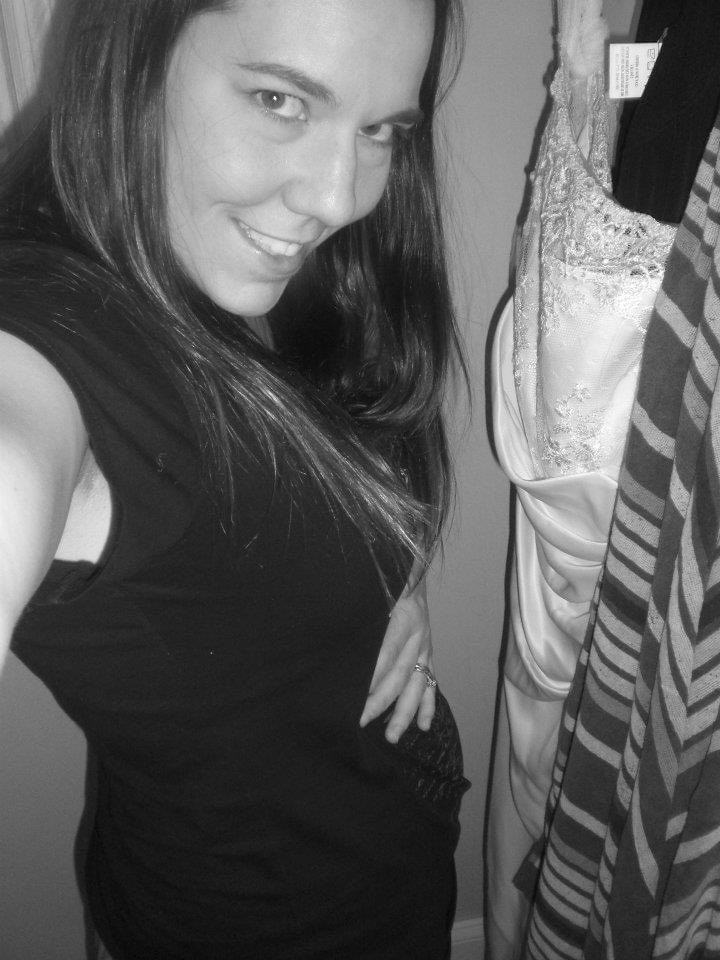
Connecting with strangers meant that the cameras kept rolling over the years. Katherine once got an email from a fan who said watching the kids “helped them decide not to go through with committing suicide”. Yet it is also a job. By the time Tripp was two years old, YouTube money paid the family’s rent. Whenever Lora got paid, she let the kids pick out a toy, meanwhile, she set money aside for college. How does it feel that videos of him as a baby will help pay for his education? “It’s super cool because I didn’t have to do anything,” Tripp says.
“I’ve been obsessed with filming my entire life”
— Lora Ellis
Zoe feels proud that she’s helped her mum make money and Katherine has paid Zoe in the past when she’s assisted with sponsorships.
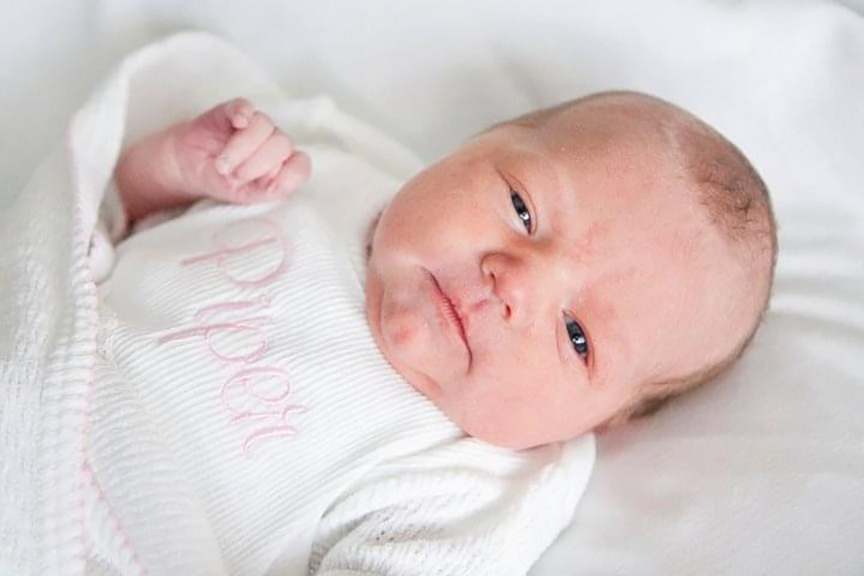
In The Truman Show, a running gag is Truman’s wife holding up purchases and spouting off ad copy: “Why don’t you let me fix you some of this new Mococoa drink? All natural cocoa beans from the upper slopes of Mount Nicaragua!” Both the Ellis and Killen families get money and free gifts from similar sponsorships. “I’d be really, really excited for most of [the free things],” Zoe says, “But there were some times that I had to say a certain thing and I didn’t like that.”
Is it embarrassing to have footage of your youngest, silliest moments online for ever? “For me, like, running around in a diaper, that’s not really embarrassing,” Tripp replies. If someone tried to pick on him at school, he’d say: “I’m the one who has 270,000 followers on YouTube, not you.” Zoe confides that she’s “definitely” embarrassed by some old videos. “There were times when I was a lot younger that I didn’t want to be filmed but I couldn’t verbalise that,” she volunteers.
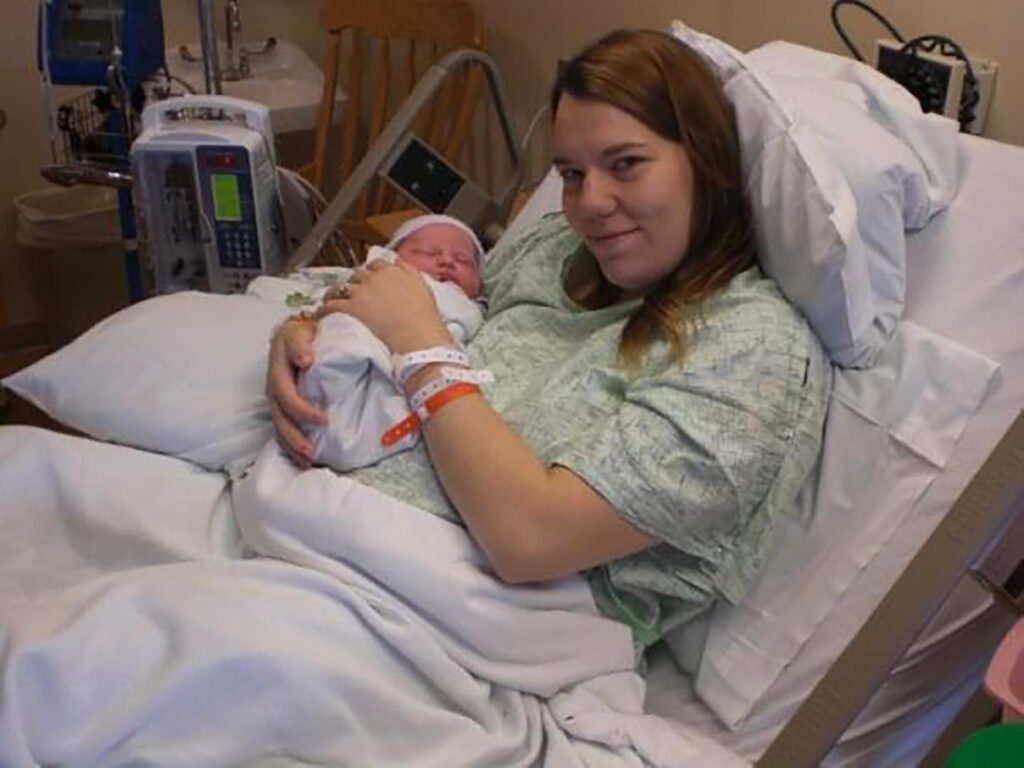
Three years ago, Katherine started asking for her children’s consent to film them. “There are just a lot of poor judgement calls that I feel like I made as a parent over the years,” she tells me, referring to when she recorded her children crying or at private doctor’s appointments (in one 2018 video Zoe had to go to the emergency room after cutting her ear, her lip wobbling feverishly as she waited for the doctor). “But it’s never too late to rectify that.”
Another of those mistakes was living life for the online diary: “I didn’t vlog very much for the better part of a year because I realised I wasn’t going to the park with my kids because I wanted to, I would go because it’s good vlog footage,” Katherine acknowledges. Zoe also recalls acting up for the camera in her younger years. Tripp says he never did, although he divulges that he now misses YouTube — the family stopped vlogging in February 2021 after hate comments became too overwhelming and Lora feared for her children’s safety (she once called the police after a woman sent threat-laden hate mail). But the Ellis sons regularly ask if they can return to YouTube. Tripp would like to go back because he enjoyed the gifts from sponsors (he fondly recalls one “huge” Lego set). “If Mama liked it, then I would still want to do it,” he says.
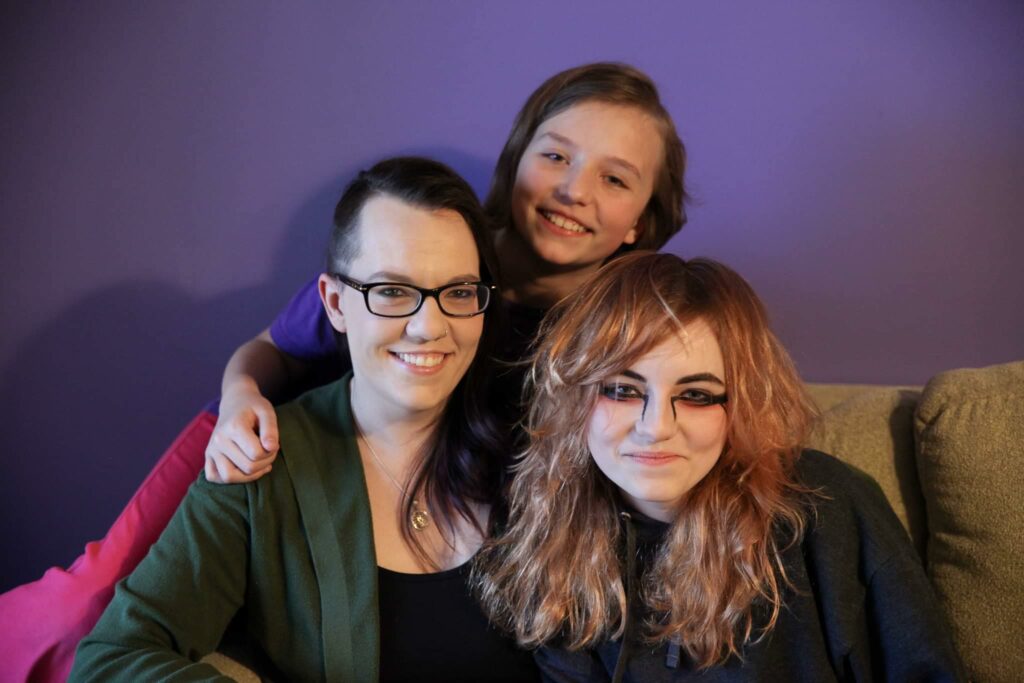
The Killens have also experienced a backlash, and viewers have called Child Protective Services on the family in the past (a large number of UK and US family vloggers have experienced this, as viewers pose as neighbours to report both legitimate and fictitious concerns, ranging from allegations of abuse to fears about children playing by pools alone). Zoe worries about stalkers, but the family keep filming because they hope their videos brighten viewers’ days. “It makes me feel warm inside. It makes me feel like no matter what I do, I’m always gonna make someone happy,” Zoe says, “That’s kind of my goal, to make people happy and feel like anybody is welcome.”
“There were times that I didn’t want to be filmed”
— Zoe Killen
When Lora and Katherine started filming their children, YouTube was still a relatively niche website, and family vlogging wasn’t a shortcut to money or fame. Today, it is so lucrative that unscrupulous practices thrive: no 1998 satire could have possibly predicted the L.A. family who filmed a toddler with a penis lollipop, or the Kent family who sold a replica doll of their newborn baby for £279. When these children become teens, they will have stories to tell.
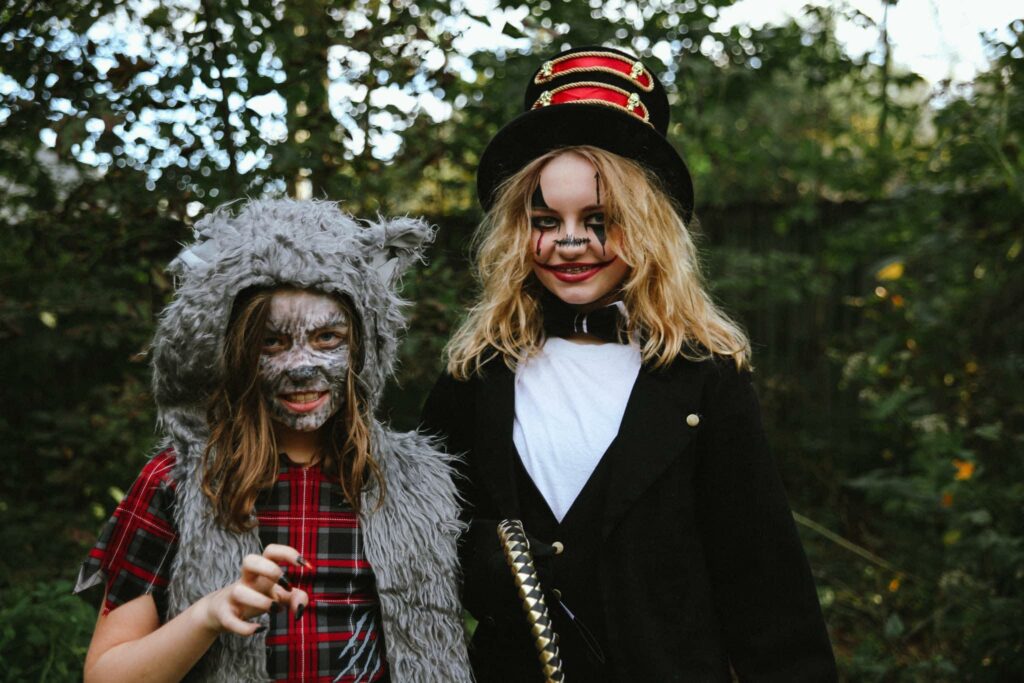
But the world’s very first Truman babies don’t have too many complaints. “It is really exciting, because, like, nobody in my school has that much subscribers or views,” Tripp says. Zoe also has a positive perspective: “My goal is never to become famous, but to impact a lot of people.” She thinks it’s cool that so far she’s been able to do that.
As Piper was nervous on our video call, her mum later asked her in private if there was anything she wanted to add. “I used to feel like we were characters in a snow globe and the rest of the world was just outside looking in,” she told her. Although she has opted to step out of the snow globe, hiding in the background of family vlogs, Piper is happy she can watch her life back any time she wants. “I wonder if other kids wish they had the same moments from their childhood to look back on? I bet they do!”
Taken from the June/July 2022 of Rolling Stone UK. Buy it here.
